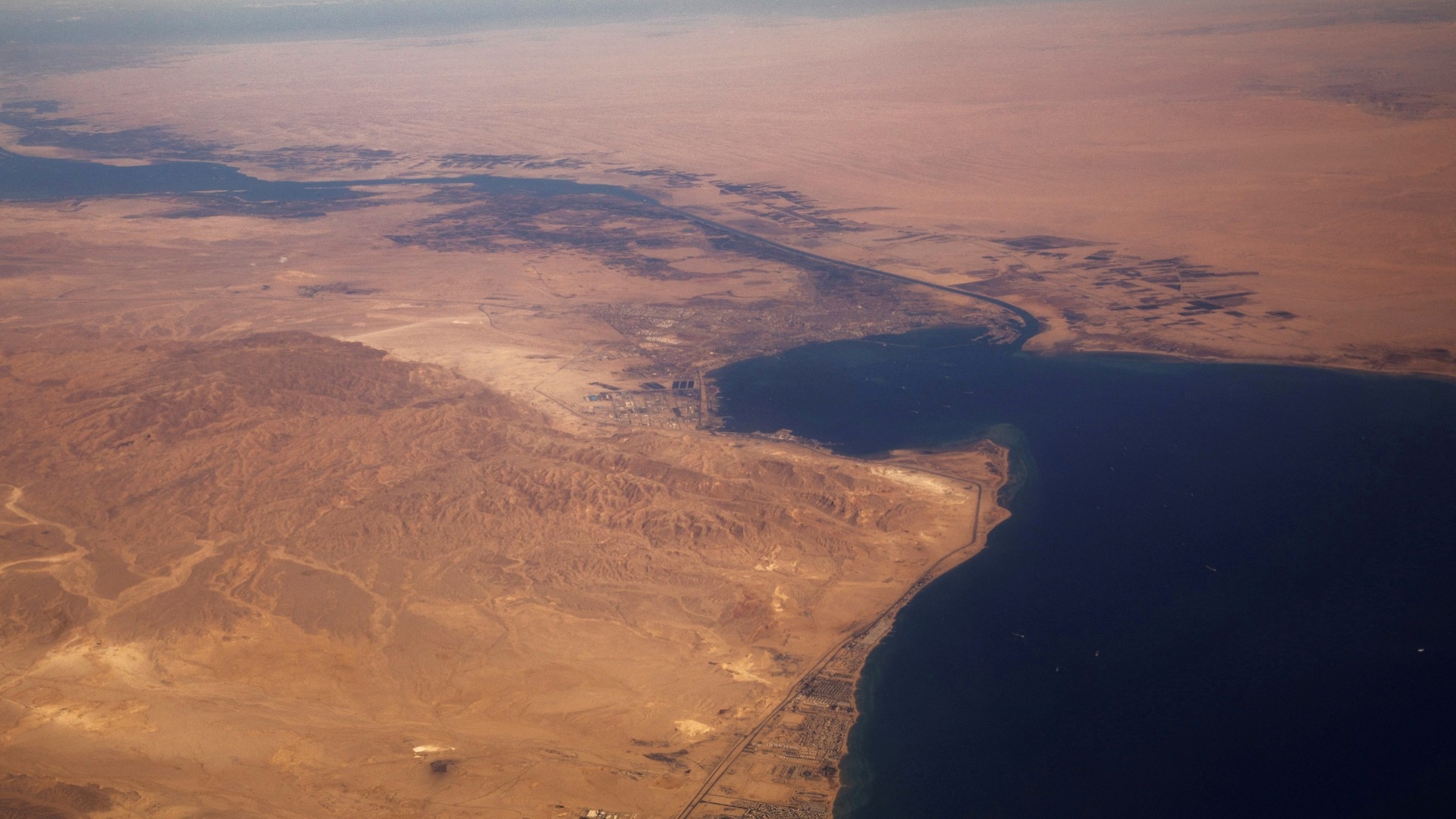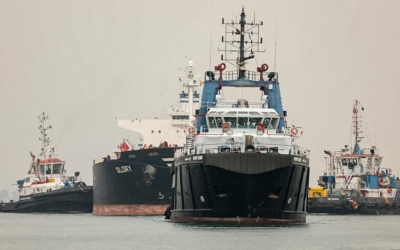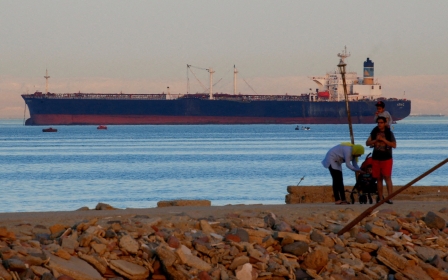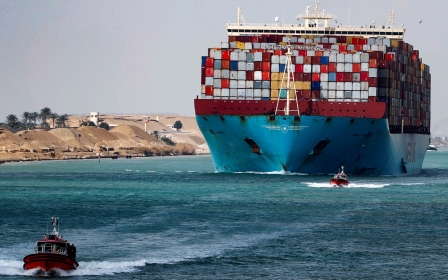Egypt plans to expand Suez Canal again after $8.2bn project fails to achieve goals

Egypt has commissioned feasibility studies for another expansion of the Suez Canal to facilitate traffic in the vital waterway where 12 percent of global maritime trade passes.
Osama Rabie, chairman of the Suez Canal Authority (SCA), said on Sunday that two international companies are currently tasked with the feasibility studies into the project which will turn single-lane segments into double lane crossings.
"We have studied the complete doubling of the Suez Canal, and so far there is no complete doubling of the canal as there are still 80 kilometres in the Suez Canal that have not been doubled, including 50 kilometres in the north and 30 kilometres in the south," Rabie said during the annual International Maritime Transport and Logistics Conference (MARLOG).
He added that the project aims at doubling the canal's navigational channel in the Great Lakes area by 10 kilometres to join the Suez Canal.
The expanded Suez Canal will be 82 kilometres instead of 72 kilometres to increase the number of ships, he explained.
New MEE newsletter: Jerusalem Dispatch
Sign up to get the latest insights and analysis on Israel-Palestine, alongside Turkey Unpacked and other MEE newsletters
The project idea has been in place since a container ship blocked the Suez Canal in 2021 for six days, halting traffic on the shortest shipping route between Europe and Asia.
Rabie last year said that another 10 km expansion was being carried out, in addition to the widening and deepening of 30 km in the waterway to facilitate two-way traffic.
Red Sea attacks hit income
Revenue from the Suez Canal has dropped by half in January compared to the same period last year since the Houthi attacks on Red Sea traffic in the aftermath of the Israeli war on Gaza on 7 October, Rabie has said.
The Houthi attacks have pushed numerous commercial vessels passing through the Suez Canal and the Bab al-Mandeb Strait to take alternative and much longer routes around South Africa’s Cape of Good Hope, causing major changes and delays.
About 15 percent of world shipping traffic transits the Suez Canal, which is a major source of foreign currency revenue for Egypt.
In 2015, Egypt completed the digging of a new 35 km lane along a section of the canal, branded as a "New Suez Canal".
The project cost $8.2bn and is one of several mega projects President Abdel Fattah el-Sisi has launched since he became president in 2014.
He promised it would boost the canal’s revenues and alleviate Egypt’s economic woes.
Egyptian pro-government media promoted Rabie’s announcement on Sunday, claiming that the 2015 project has increased the canal’s revenues from $4bn in 2015 to $9bn in 2023.
But a study by the Alternative Policy Solutions think tank at the American University in Cairo published in August showed that the 2015 project has not boosted the canal’s revenues as hoped.
While revenues have increased, so have expenditures, including wages and taxes, it said.
It cited the increase in the cost-to-income ratio as a negative indicator of the profitability of the project over the past nine years.
“That ratio shows the profitability of a particular project and the efficiency of its management: the lower the ratio, the more profitable the project will be, and vice versa. In this case, the ratio is high, indicating that costs are rising more quickly than income,” the study concluded, citing data from the SCA.
An investigation by the fact-checking website Saheeh Masr on Monday revealed, citing Central Bank data, that only part of the revenues reached Egypt’s general budget. For example, in 2022, the state budget received $3.8bn out of $7bn total revenues from the canal.
Middle East Eye delivers independent and unrivalled coverage and analysis of the Middle East, North Africa and beyond. To learn more about republishing this content and the associated fees, please fill out this form. More about MEE can be found here.





